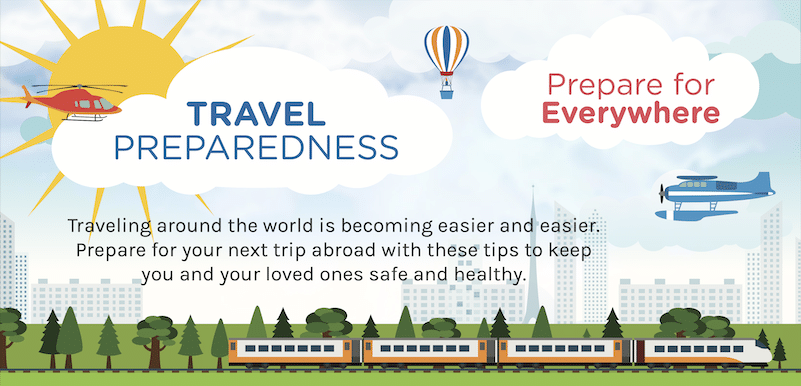There are few activities that provide a greater explosion of sense and emotions than putting foot in a new land — a foreign place where you have to navigate language, landscape, and culture practically the instant you arrive.
Memories of stepping off a plane and heading out of the airport in Kathmandu, Port Au Prince, and Guatemala are forever stored and accessible in my brain’s happy file. Prominent among these are the new smells, the architecture, the people, and the only slightly realization that you’re not in Kansas anymore. Or North Carolina or wherever it is you call home.
And the places to which we travel, and the experience we take away from those adventures are tied directly to how safe we feel while out exploring.
As more of us prepare to climb on planes, trains, and boats again, NCOAE wants to share some of the safety and risk mitigation tips we have learned along the way when traveling far from home with clients from all walks of life.
With the tips we offer below, the focus is on adventure travel and ecotourism. Don’t neglect to research basic travel tips as well.
Let’s get started:
Prepare a Checklist Before You Leave
Take copies of your passport and other important documents with you. This way, if you lose your documents, you can at least present a copy to your embassy or consulate while abroad and have replacement or temporary travel documents issued. In addition:
- Take pictures or scan your documents and email them to yourself as well as saving documents to the cloud for easy access.
- Consider registering your travel plans with your embassy/consulate before leaving home. This gives your government knowledge of your whereabouts and aids in response time if they need to be involved.
- Consider taking out travel insurance. The key here is, Hope for the best, plan for the worst.
- Leave a copy of your itinerary with friends or family.
Being Aware is a Huge Part of Safe Travel
Know before you go. Do your research, create a plan, and have a backup plan ready in case Plan A goes south. Other suggestions:
- Sign up for and complete at least a basic first aid course before your departure so you can help yourself and group members if it should ever come to that.
- Remember that while many interactions with strangers are genuine, entering into relationships with a healthy amount of caution is always a good idea (think of it as risk mitigation). You are the tourist and that means locals hold the high ground.
- Know what is going on with the government of the country you are visiting, and even check on political stability (I once found myself in the middle of a coup. It was stressful). Visit the U.S. State Department’s Travel Advisories webpage for the latest information on all countries with known threats for international visitors.
- Research exchange rates and whether the countries you’re traveling to accept your currency. I have been in situations where the U.S dollar was necessary instead of the local currency). The Board of Governors of the Federal Reserve System website has an update-to-date tool for calculating foreign exchange rates.
- If you are an adventure traveler, you will end up in remote places. Research beforehand where hospitals, communication, and emergency transport facilities are located accessible.
- Do your research on outfitters and guides — even if you don’t think you need a guide. There are places where you may want to hire one out of respect for the culture of the country, and these outdoor industry pros are extremely knowledgeable about local customs and helping foreigners work their wat out of a jam.
- Remember: If you are in a situation that seems unsafe, walk away. An example would be if you climb on a boat and find they don’t carry any life jackets, life preservers, or life vests. At that point, you might want to consider a different outfitter or simply cancel that part of your trip.
- If there is no infrastructure, make an Emergency Response Plan for you and your traveling partners.
The U.S State Department has maintained and excellent travel page for many years and recently (three years ago) added an adventure travel page that provides some sound advice on hiring guides, country culture, and safety. To view this page, visit U.S State Department Special Considerations for Adventure Travel.
If you seriously want to travel and you think you’d prefer being part of a group, or if you are seeking additional guidance, please reach out to us at The National Center for Outdoor & Adventure Education.
I carry in my head fantastic memories of travel. Some of these memories make me smile, other memories make me reflect on how the heck I am still alive and well. But nearly all of my memories remind me why I love to travel.
Take risks — and always remain safe.
TALK TO US
Have any further questions about our courses, what you’ll learn, or what else to expect? Contact us, we’re here to help!

Leave a comment